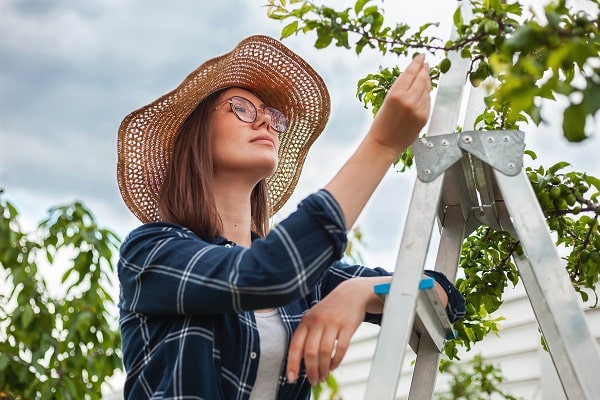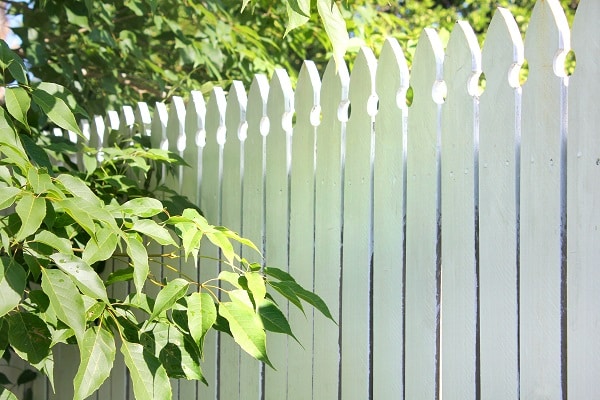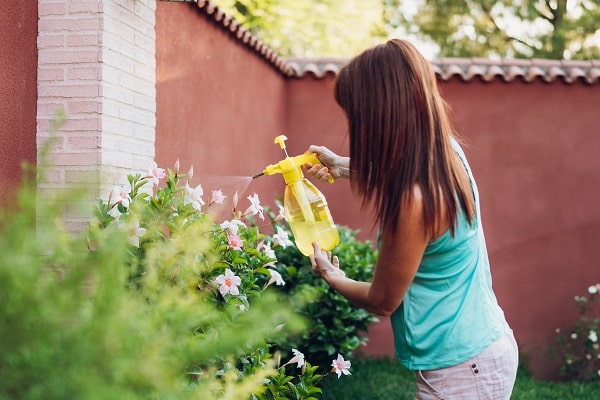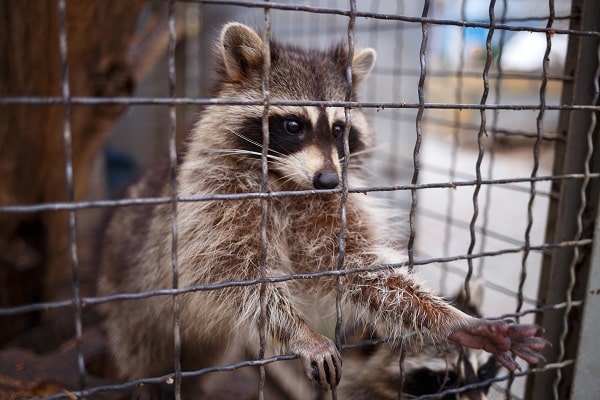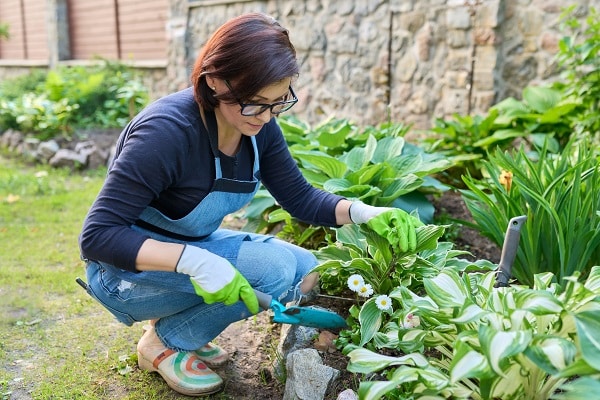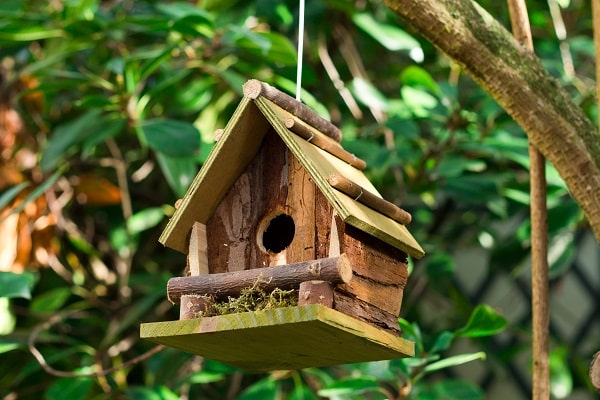A well-tended garden can often seem like an open invitation to wildlife, offering a delicious smorgasbord of plants for a variety of critters. While some gardeners enjoy the presence of wildlife, others may view them as unwelcome intruders nibbling away at their hard-earned produce and blooms. This post offers effective strategies to keep animals out of your garden, protect your plants from unwanted feasting, and maintain a harmonious co-existence with the local wildlife.
Contents
Understanding The Animal Intruders
When it comes to safeguarding your garden, the first step is identifying your specific intruders. A range of creatures, from deer and rabbits to birds and squirrels, could be your culprits. Each of these animals is drawn to different types of plants and exhibits unique behaviors. Understanding these differences is key to implementing effective deterrents. For example, if your ripe tomatoes are mysteriously disappearing, you may have a squirrel issue, while chomped lettuce could indicate rabbits.
Being able to correctly identify the animals visiting your garden will also help you address the problem in a more targeted way. Different creatures will require different deterrence methods. It’s also beneficial to remember that the same animals that may be causing damage can also play crucial roles in local ecosystems. Their presence, in moderation, can even benefit your garden by aiding in pollination or controlling other pests.
Assessing The Damage
Recognizing the signs of animal activity in your garden can provide significant clues to the species of intruders. For instance, if you find small, neat holes in your tomatoes, you may be dealing with birds. On the other hand, rough tears in your foliage could indicate larger mammals like deer. Tracks, droppings, and even the time of the damage (night or day) can offer additional insight.
Once you’ve identified the type of damage and correlated it with possible culprits, it’s time to strategize the best prevention methods. Each animal has specific deterrents that are more effective than others. For example, a fence might work well for deer but might not be the best solution for birds. A thorough understanding of your garden’s specific situation is crucial in implementing an effective solution.
Natural Deterrents
Mother Nature herself provides an array of natural deterrents that can keep unwanted guests at bay. Certain plants, herbs, and spices can deter specific animals. For instance, marigolds are known to deter rabbits, while squirrels dislike spicy scents like cayenne pepper. Even human hair or dog fur can deter deer, who are put off by the scent of predators.
Besides plants and spices, other substances can serve as natural repellents. Homemade sprays, such as mixtures of water and spicy peppers or garlic, can be sprayed on plants to deter a variety of animals. Keep in mind, however, that these natural remedies often need to be reapplied after rain and may not be as potent or long-lasting as commercial options. But for the organic gardener or those with mild pest problems, these natural deterrents can be an effective first line of defense.
Physical Barriers
Physical barriers can also provide a potent line of defense against garden invaders. The type of barrier will depend on the kind of animals you’re dealing with. For example, a sturdy fence can effectively keep out larger mammals like deer or rabbits, while bird netting can protect your fruits from avian invaders. When installing fences, it’s important to remember that some animals can dig under or jump over, so the fence should be buried a few inches into the ground and be tall enough to deter jumping.
When using netting or plant covers, ensure they are securely fastened and checked regularly for any gaps or damage. You can also consider using cages or cloches for individual plants or smaller garden sections. These barriers not only keep animals out but can also provide some protection against harsh weather conditions. It’s a more time-intensive solution but can be highly effective, especially for more vulnerable or valuable plants.
Repellents
There’s a wide variety of commercial repellents available that can keep various animals away from your garden. These products range from sprays and granules to electronic devices. They work by producing smells, tastes, or sensations that are unpleasant to specific animals. For example, some products might contain predator urine, which deters prey animals like rabbits or deer. Other repellents might use strong-smelling substances like garlic or pepper.
While using repellents, it’s crucial to follow the manufacturer’s instructions to ensure they’re applied safely and effectively. Also, remember to reapply them regularly, especially after heavy rain, to maintain their effectiveness. And be aware that some animals can become accustomed to these repellents over time. So, it’s a good idea to rotate different types of repellents to prevent this habituation.
Traps And Scare Devices
Another approach to deterring garden pests is the use of humane traps and scare devices. Live traps can be a solution for persistent or destructive pests like raccoons or squirrels. Once trapped, you can relocate them, ideally with the help of local animal control or a wildlife professional to ensure they’re moved to a suitable location.
Scare devices work on the principle of creating an environment that is uncomfortable or scary for the animals. These can be as simple as a scarecrow or more complex like a motion-activated sprinkler or an ultrasonic device. Again, remember that animals can get used to these devices over time, so it can be beneficial to move them around or switch them out periodically to maintain their effectiveness.
Introducing Predators
Introducing natural predators or creating an environment that attracts them can be an effective long-term solution. For instance, installing a bat house can help control insect populations, as bats are prolific insect predators. Similarly, encouraging birds of prey can help manage smaller mammals. However, this method should be used with caution, as it can have unforeseen effects on local ecosystems.
Moreover, the predators themselves can sometimes become a nuisance. For example, attracting larger birds of prey might inadvertently lead to issues with smaller songbirds. It’s important to research thoroughly and consider consulting with a local wildlife expert before deciding to attract predators to your garden.
Garden Design And Plant Choices
The design of your garden and the plants you choose to cultivate can also play a significant role in deterring animal visitors. Some plants are naturally more resistant to certain animals, either because they find them unappetizing or because the plants have physical properties that deter them. For instance, planting thorny or prickly plants can deter animals like deer and rabbits, while certain strong-smelling herbs can deter various creatures.
Your garden’s layout can also be a deterrent. Planting susceptible plants closer to your house, where there is more human activity, can make them less attractive to wildlife. Additionally, maintaining a clean garden by regularly collecting fallen fruit and disposing of garden waste can make it less inviting to animals. Similarly, providing an alternative food source, like a bird feeder or squirrel feeder located away from your garden, can distract wildlife from your precious plants.
Maintaining A Balance
In your quest to protect your garden, it’s important to remember that all wildlife plays a vital role in the local ecosystem. Insects pollinate flowers, birds control pests, and larger animals can aid in seed dispersal. So, while protecting your garden, strive to achieve a balance that respects and supports these natural processes.
It can be beneficial to designate certain areas of your garden as “wildlife-friendly,” with plants and features that attract and support local fauna. Providing a water source, native plants, and habitats like bird boxes or log piles can make these areas attractive to wildlife and, hopefully, keep them away from the rest of your garden.
Find The Right Methods To Keep Animals Out Of Your Garden!
Trying to keep animals out of your garden can sometimes feel like a never-ending battle, but with a bit of knowledge and strategic planning, you can effectively protect your plants while maintaining harmony with nature. By understanding your specific animal intruders, assessing the damage, and implementing the appropriate deterrents, you can start to take control of your garden. Ultimately, the goal is to strike a balance, creating a flourishing garden while co-existing peacefully with the local wildlife!

